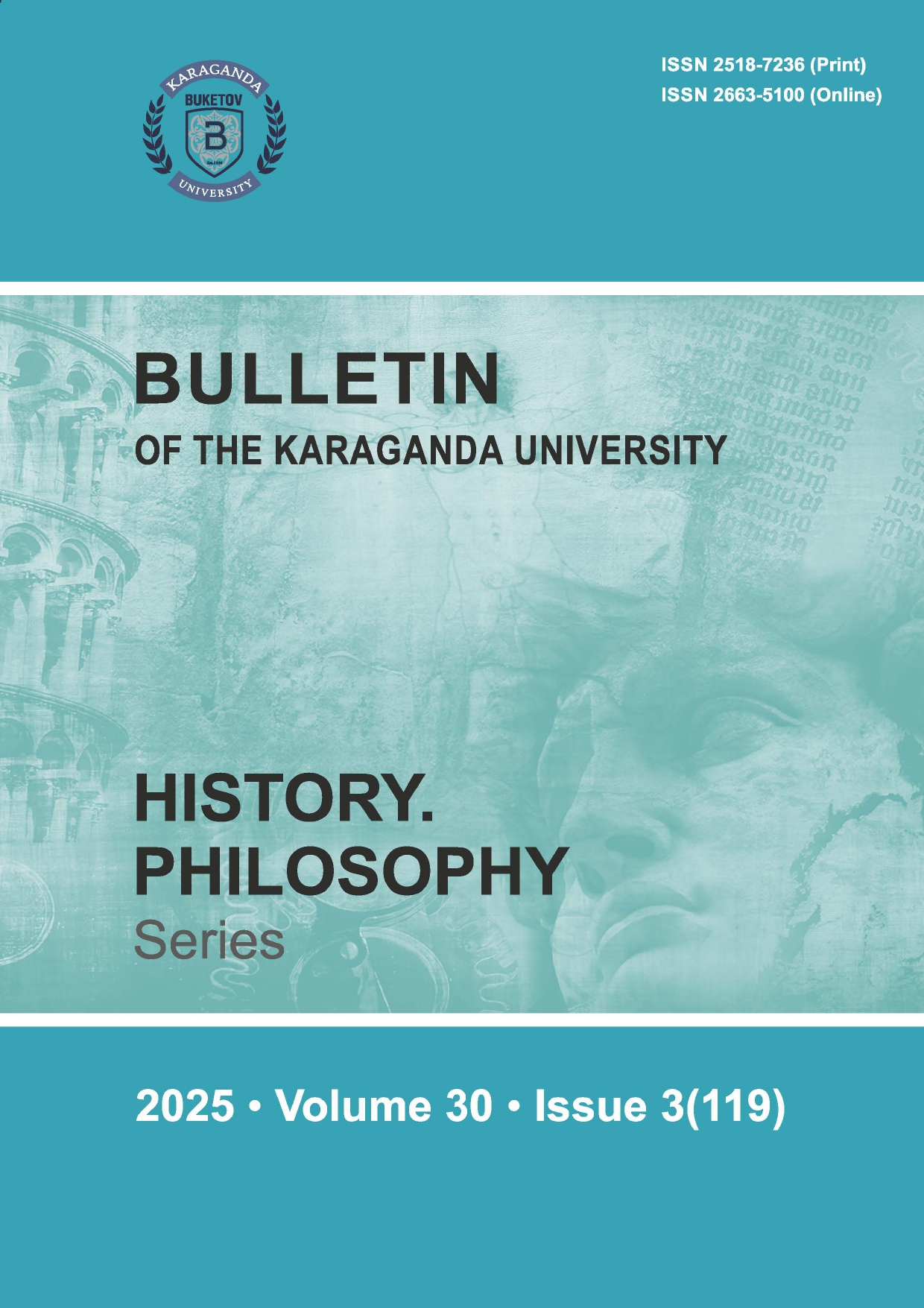Language Policy in the Context of Indigenization in the Early Soviet Period (Based on the Materials of the State Archives of Pavlodar Region)
DOI:
https://doi.org/10.31489/2025hph3/27-34Keywords:
indigenization, national identit, sovietization, Soviet Kazakhstan, socio-cultural modernization, regional history, Pavlodar district, language policy, personnel training, historiographyAbstract
Based on an analysis of bibliographic sources as well as factual materials from the State Archives of Pavlodar Region (hereafter SAPR), this article describes the contradictions in language legislation within the framework of indigenization, both in its ideological and practical aspects. The authors examine how the theoretical inconsistencies underlying the policy affected its practical implementation. In particular, the article addresses the discrepancy between the declared principles of equality and respect for the cultural traditions of national minorities and the actual measures aimed at “Sovietization” and integration into a unified Soviet identity. The study of this policy is aimed at comprehending the historical experience of building national statehood under the Soviet system and the interaction of ethnic groups in a multiethnic state. This will help to fill in the “blank spots” of history and assess its significance for modern Kazakhstan, in the context of shaping a multiethnic society into a single political nation. During the research work conducted at GAPO, materials on the topic of language legislation were studied and systematized. Based on the collected materials, the article investigates regional features of the implementation and management of recordkeeping in the Kazakh language, examines the course activities on Kazakh literacy and language training for both Kazakhs and Europeans living in the region, and analyzes issues of personnel recruitment and training.




